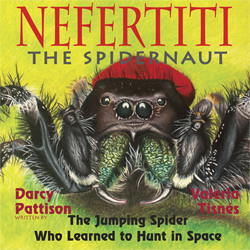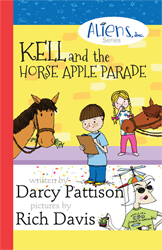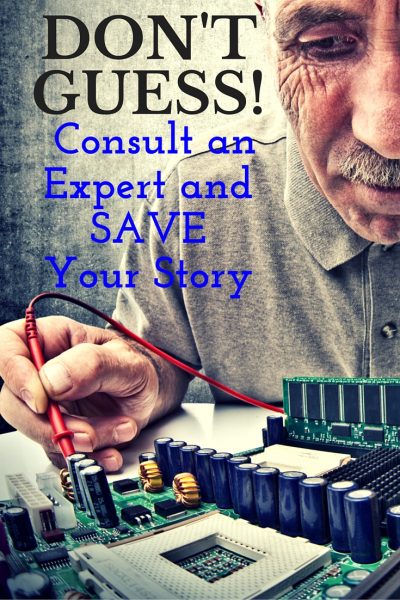Everyone knows that you can’t defeat a black hole. Right?
But what if you’re writing a science fiction story and you NEED your characters to defeat the black hole.
Um. Hard. Your readers won’t go there with you, unless. . .
Seek Experts
That’s exactly the situation I found myself in. I had set up a science fiction story with an impossible scenario because it was an exciting options. But then, I found myself being sucked (metaphorically) into a black hole. How could my characters defeat the undefeatable.
Fortunately, I had an expert in the family. My brother is a physics whiz and I asked him some simple questions that set him off on a path of speculation. In the end, he came up with something that he said “graduate students would seriously discuss the possibility.” That’s good enough for me! The results make the story more believable. You can read it next year when my sff novel, tentatively called BLUE MARBLES, comes out.

 And a final example: In Kell and the Horse Apple Parade, an alien named Kell and his BFF, Bree, must plan a Friends of Police parade. I wanted kids to dress up like a super-hero(ine)s, but of course, I can’t rip off Marvel. Instead, I needed to create my own super-hero(ine)s. I turned to my nephew, who is the ultimate collector of everything HULK. He teaches sixth grade history and one semester he taught a special class on American Mythology; all the kids did was read from his collection of comics. (Wouldn’t you have LOVED him as a sixth grade teacher?) He suggested several unique super-hero(ine)s and that made a huge difference in the story.
And a final example: In Kell and the Horse Apple Parade, an alien named Kell and his BFF, Bree, must plan a Friends of Police parade. I wanted kids to dress up like a super-hero(ine)s, but of course, I can’t rip off Marvel. Instead, I needed to create my own super-hero(ine)s. I turned to my nephew, who is the ultimate collector of everything HULK. He teaches sixth grade history and one semester he taught a special class on American Mythology; all the kids did was read from his collection of comics. (Wouldn’t you have LOVED him as a sixth grade teacher?) He suggested several unique super-hero(ine)s and that made a huge difference in the story.
From checking facts in a non-fiction to creating super-hero(ine)s to speculation on how to defeat a black hole, I’ve used experts in both fiction and nonfiction. They help me create a more coherent and more interesting world.
Find Your Expert
Where will you find your expert?

Family. In my case, I turned to my brother and my nephew first because they were both truly experts on something I needed. If you do this, be sure they are really the right person to ask and not just convenient.
Recommendations. Ask around for recommendations. The scientist involved in the spider project recommended the arachnologist. I often see writers asking their Facebook or Twitter followers for suggestions.
University, Museum, and More. Another source of information can be a college professor who is considered an expert in their field. The arachnologist works at a science museum. Sometimes googling can help you find the right information; but I also like to search google.com/scholar for scientific papers on a topic. When you find a name repeated or cited often, that could be a person to use. Then, do a search on google.com and choose Search Tools/Any Time/Past Year. That limits the search to only hits from the last 365 days. In other words, it’s current and recent information. Usually, you can find the current university where the person works and then use the university site to find contact info.
It’s Still Your Story
Of course, one danger of asking experts to make comments or suggestions is that they will make comments and suggestions. On everything!
You’ve asked them to comment from their perspective as an expert in a certain field. But that usually means they are very intelligent people and have an opinion on many other related things. You must thank them, both privately and in an acknowledgment in your book. However, you do not have to change everything they mention. Certainly, you must listen to everything and evaluate if it’s right for your book. But always remember that it’s your book. Only do what works for your story.
Experts can add credibility, accuracy and fun to your story. Use them wisely.